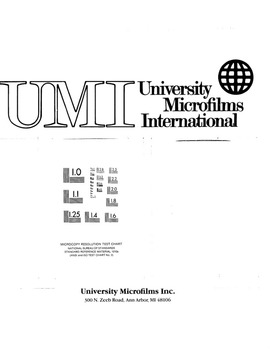| dc.contributor.author | Maluf, Ramez Bahige, | en_US |
| dc.date.accessioned | 2013-08-16T12:29:26Z | |
| dc.date.available | 2013-08-16T12:29:26Z | |
| dc.date.issued | 1985 | en_US |
| dc.identifier.uri | https://hdl.handle.net/11244/5390 | |
| dc.description.abstract | Nollet saw his work as part of a collective process that pre-supposed standardization of instruments and procedures. He thus rejected anything that was controversial or that could not be settled in a cabinet de physique. He helped steer physics into the laboratory, keeping clear of controversies that engulfed much of French physics during the period of the introduction of Newtonian physics into the continent. Years later, as the cabinet de physique became more demanding and more precise Nollet's experiments appeared crude and his theories outdated. | en_US |
| dc.description.abstract | This dissertation examines the scientific career of the Abbe Jean Antoine Nollet (1700-1770) and attempts to throw some light on his work in the context of eighteenth-century physics. | en_US |
| dc.description.abstract | A central theme of the dissertation is that Nollet enjoyed the esteem of contemporary scientists and savants because he preached and practised a type of physics that was considered beyond controversy, believed to be grounded on observation, experiments and those truths of science around which scientists were agreed. | en_US |
| dc.description.abstract | Nollet also helped popularize experimental physics by building its instruments, designing experiments, and advancing theories based on them. His most important theoretical contribution was in the field of electricity--the eighteenth-century experimental science par excellence. The theory of electricity he presented in 1745 provides an illustration of his method and work. It was formulated to explain a vast array of experimental and observational data and it relied heavily on the senses; it also relied on Nollet's notion of a science built on non-controversial facts, a science of consensus. The theory can be seen as a methodical arrangement of those ideas about electricity shared by a large number of students of the field and the many observations he performed. | en_US |
| dc.format.extent | ix, 194, [i.e. 193] leaves ; | en_US |
| dc.publisher | The University of Oklahoma. | en_US |
| dc.subject | Nollet, abbÔΩ̜ (Jean Antoine), 1700-1770. | en_US |
| dc.subject | History of Science. | en_US |
| dc.subject | Science Early works to 1800 | en_US |
| dc.subject | Physics Early works to 1800. | en_US |
| dc.title | Jean Antoine Nollet and experimental natural philosophy in eighteenth-century France / | en_US |
| dc.type | Thesis | en_US |
| dc.thesis.degree | Ph.D. | en_US |
| dc.note | Source: Dissertation Abstracts International, Volume: 46-12, Section: A, page: 3846. | en_US |
| ou.identifier | (UMI)AAI8603514 | en_US |
| ou.group | College of Arts and Sciences::Department of History of Science | |
